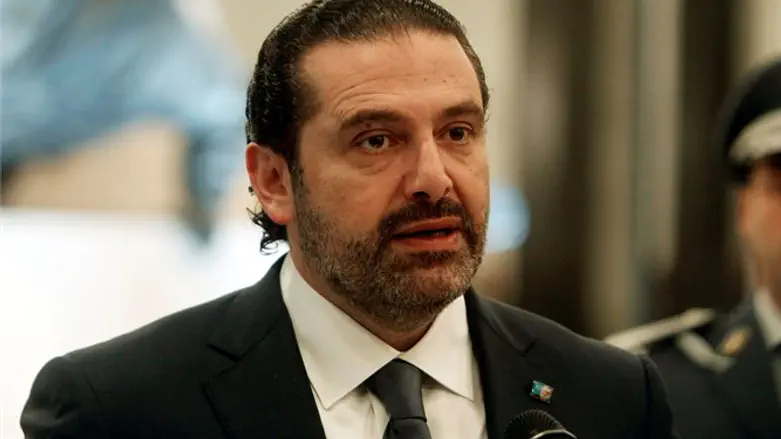
Lebanon plans to increase its military presence along its southern border with Israel, Prime Minister Saad Hariri said on Thursday, according to Reuters.
Hariri spoke at a meeting in Rome, where he is seeking financial support for Lebanon’s armed forces.
Bolstering the Lebanese Armed Forces (LAF) and internal security forces is seen as a way for the international community to keep the Hezbollah terrorist group, which has helped sway the Syrian civil war in President Bashar Al-Assad’s favor, from broadening its clout in the Lebanese heartland.
“We will be sending more LAF troops to the south, and we stress our intention to deploy another regiment,” said Hariri, adding that Israel “remains the primary threat to Lebanon”.
“While we are thinking of ways to move from a state of cessation of hostilities to a state of permanent ceasefire, Israel continues to make plans to build walls on reservation areas along the blue line,” Hariri added.
In a joint statement, the conference participants said Lebanon should “accelerate effective and durable deployments to the South”.
The UN Security Council has allowed for 15,000 Lebanese troops to be deployed along the border since the end of the 2006 Second Lebanon War.
On Thursday, Hariri said he presented the five-year plans for Lebanon’s military and security services to the participants, and each country would decide in the coming months how it could help.
The European Union pledged 50 million euros ($61.6 million) to Lebanon’s security forces, and Hariri said France had created a 400-million-euro credit facility to purchase “equipment” for Lebanon’s military and security forces. The UK has pledged an additional $13 million, it said on Twitter, according to Reuters.
“I’m extremely satisfied with the outcome,” Hariri was quoted as having said after the conference.
Some 40 countries participated in the meeting, along with and United Nations Secretary General Antonio Guterres. While some financial aid was announced on Thursday, Hariri said that the goal of the meeting was not to gather pledges.
A senior Hezbollah official recently issued a threat to Israel following the incident in the north in which the Israel Air Force downed an Iranian drone that infiltrated Israeli territory and an Israeli F16 was shot down by Syrian anti-aircraft fire.
The official said that Israel would carry out an "act of stupidity" if it initiated "aggression" against Syria, Lebanon or Gaza.
On Thursday, however, Hezbollah’s deputy leader said the Iranian-backed terror group does not expect war with Israel but made clear that it was prepared should Israel attack.
"We have declared repeatedly and frequently that we, as the resistance, work to have permanent readiness and we are ready to confront the Israeli aggression if it happens, and therefore we are ready to defend [ourselves] by all available means," Sheikh Naim Qassem told Reuters.
Qassem clarified though "that it does not appear that the circumstances are for an Israeli decision for war.”
Tensions between Israel and Lebanon have also risen recently over offshore gas drilling.
Last month, Lebanon signed its first contract to drill for oil and gas off its coast with a consortium comprising energy giants Total, ENI and Novatek, including in a block disputed by Israel.
Israel says one of two blocks in the eastern Mediterranean where Lebanon wants to drill for oil belongs to it, and has denounced any exploration by Beirut as "provocative".
Guterres said last month that a direct confrontation between Israel and Hezbollah would be his “worst nightmare”.
“The worst nightmare would be if there is a direct confrontation between Israel and Hezbollah...the level of destruction in Lebanon would be absolutely devastating, so there are major points of concern around this situation,” he warned.
